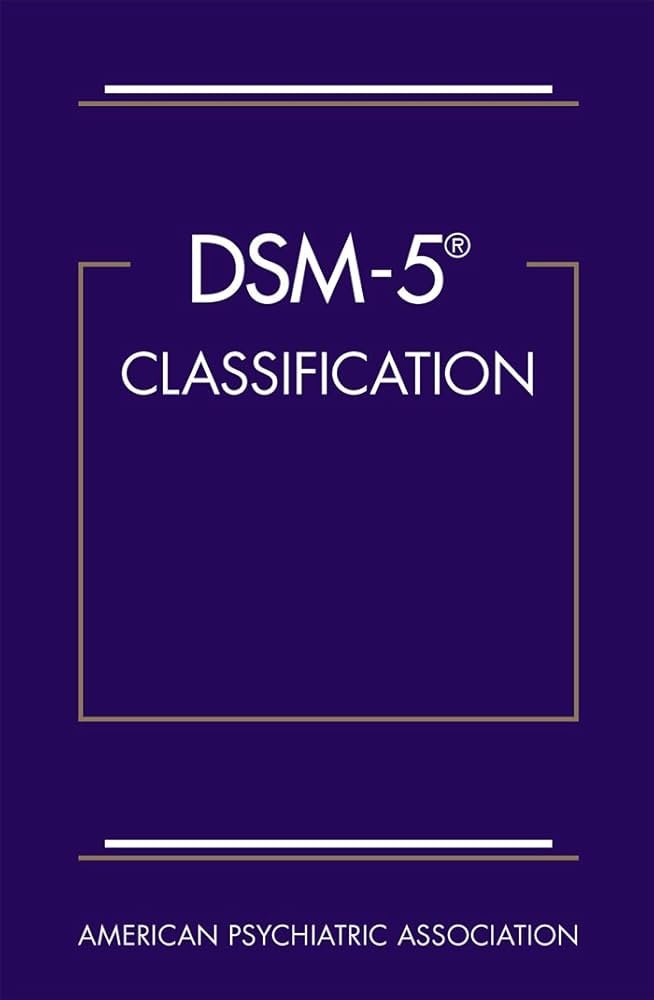Rethinking Mental Illness: Healing and Recovery in the DSM
The Diagnostic and Statistical Manual of Mental Disorders (DSM) has long been the cornerstone of mental health diagnosis, guiding clinicians worldwide. Yet, as our understanding of mental health evolves, so must our approach to defining and addressing it. A question arises: should individuals who have achieved stability and well-being through healing and recovery continue to be classified as “mentally ill” under the DSM? This inquiry challenges long-standing practices and compels us to rethink how we conceptualize mental health, illness, and recovery.
The Foundations of the DSM
Since its inception in 1952, the DSM has provided clinicians with a comprehensive framework for categorizing and diagnosing mental health conditions. The current edition, DSM-5, reflects decades of research and clinical expertise. Despite its utility, the DSM is often criticized for its static, categorical approach that may oversimplify the dynamic nature of mental health.
Key limitations include:
- Overemphasis on symptoms and behaviors rather than underlying causes.
- Potential for misdiagnosis or underdiagnosis.
- Lack of acknowledgment for the fluidity of mental health.
These limitations prompt a deeper exploration of how mental health is defined and addressed, particularly in light of the healing and recovery model.
The Spectrum of Mental Health
Mental health exists on a continuum, ranging from optimal well-being to severe mental illness. This perspective challenges the binary notion of being “mentally ill” or “mentally well” and recognizes that mental health can fluctuate due to genetics, life experiences, and environmental factors.
For instance, an individual with Generalized Anxiety Disorder (GAD) who has achieved stability through therapy might no longer meet the DSM’s criteria for a disorder. However, they may still benefit from ongoing support to maintain their well-being. This underscores the need for a nuanced understanding that moves beyond rigid classifications.
Acute vs. Chronic Mental Health Conditions
Differentiating between acute and chronic mental health conditions further highlights the complexity of diagnosis:
Acute Conditions: Short-term, intense episodes requiring immediate intervention.
Chronic Conditions: Long-lasting challenges requiring sustained management and support.
The DSM acknowledges this fluidity through specifiers such as “in partial remission” and “in full remission,” which reflect changes in a person’s mental health over time. These classifications are pivotal in tailoring treatment plans and fostering recovery.
The Role of Healing and Recovery
Healing and recovery extend beyond symptom management, encompassing a holistic approach to well-being. For many individuals, recovery does not mean the complete absence of symptoms but rather the ability to lead fulfilling, meaningful lives despite their challenges.
Research shows that individuals with well-managed mental health conditions can achieve levels of well-being comparable to those without diagnoses. This finding shifts the focus from diagnosis to personal growth and resilience, challenging the notion that mental illness is a permanent label.
Tailoring Treatment Approaches:
Specifiers guide clinicians in customizing treatment plans based on the individual’s current status.
- In acute phases, crisis management and stabilization take priority to manage immediate symptoms and ensure safety.
- Individuals in remission may benefit from interventions focused on maintaining stability, preventing relapse, and fostering overall well-being.
- Treatment plans should be dynamic, responsive to changes in symptom presentation, and aim to promote long-term recovery.
Destigmatizing Remission:
Viewing remission as an integral part of the mental health journey, rather than a final destination, is vital to reducing the stigma associated with mental illness.
- Clinicians play a crucial role in promoting remission as a positive and attainable outcome.
- Encouraging individuals to seek and adhere to treatment without fear of being labeled as “ill” is essential.
- Celebrating remission as a significant milestone in recovery can empower individuals and challenge societal misconceptions.
Recognizing the Potential for Recovery:
The inclusion of remission specifiers in diagnostic criteria underscores the potential for recovery, even in individuals with chronic mental health conditions.
- A recovery-oriented perspective shifts the focus from managing symptoms to supporting individuals in achieving meaningful and fulfilling lives.
- Clinicians can empower individuals to set recovery goals, develop coping strategies, and build resilience in the face of challenges.
- Acknowledging the potential for recovery promotes hope and fosters a sense of self-determination among individuals with mental health conditions.
By embracing the fluid nature of mental health and utilizing remission specifiers, clinicians can provide more effective, compassionate, and recovery-focused care while challenging societal stereotypes surrounding mental illness.
Shifting Perspectives: From Diagnosis to Recovery
The movement toward person-first language, such as referring to someone as “an individual with schizophrenia” rather than “a schizophrenic,” reflects this broader shift. This approach emphasizes humanity over diagnosis and recognizes the potential for growth and recovery.
Therapists and mental health professionals are increasingly adopting strategies grounded in empathy, resilience, and empowerment:
- Collaborative Goal Setting: Encouraging clients to define their recovery goals and take an active role in their mental health journey.
- Mindfulness and Self-Compassion: Promoting practices that help clients manage their mental well-being with kindness and patience.
- Empowering Language: Using language that focuses on experiences rather than diagnostic labels fosters self-efficacy and hope.
Conclusion
The DSM remains a valuable tool, but it must be complemented by a dynamic, recovery-oriented approach that reflects the evolving nature of mental health. Healing and recovery are not just possible—they are integral to the human experience. By embracing this holistic perspective, we can better support individuals on their journey, reduce stigma, and foster a more compassionate, effective mental health care system.
Let’s continue this conversation: How do you think mental health care can evolve to better support recovery?
Max E. Guttman is the owner of Mindful Living LCSW, PLLC, a private mental health practice in Yonkers, New York.
- Max E. Guttman







